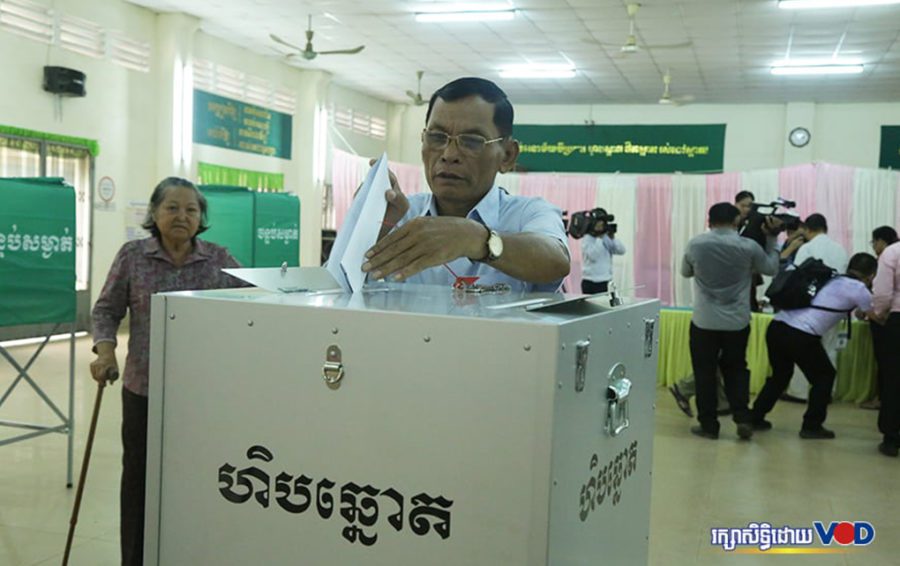Mock elections across all provinces will be held on June 20 to trial a new vote-tallying system involving technology funded by Japan, the E.U. and China, ahead of upcoming 2022 commune elections that are scheduled for next June.
A National Police directive signed by commissioner Neth Savoeun on Monday said 700 officers would be on standby in all provincial capitals for the trial election on Sunday in two weeks.
Each province will select one commune and two polling stations — one central and one remote — for the test, and have at most 500 voters per polling station, the directive says.
Preparatory tasks include registering candidates and monitors, training staff for vote counts and readying voter lists, it says.
Particular attention will be paid to Covid-19 health measures, and public participants in the trial will be expected to be vaccinated.
“From now until the end of the [trial] election, staff, departments, relevant units and every police commission in the capital and provinces must strengthen their teams to receive and exchange information related to the general security situation … and report regularly to the General Commissariat of the National Police regularly. Twice a day in the morning at 8:00 and in the afternoon at 16:00 until the end of the task,” it says.
National Election Committee deputy secretary-general Som Sorida said on Tuesday that the mock election would test a computerized voting system, and the committee would make adjustments to it as needed before next year.
In the past, assessing invalid ballots had been a challenge, and new equipment would make markings more uniform, he said. Sorida added that a system would be used to organize candidates’ information.
Committee spokesperson Hang Puthea said the equipment was funded by Japan, the E.U. and China, and involved a pen with a stamp at its nib.
“It is like a normal pen but attached with a small stamp at the tip of the pen, and draws on voting paper,” Puthea said. “This sign will appear the same [for all voters], and it will not appear as short or long signs as when they are hand drawn.”
He did not specify if counting would be done electronically, but he said computers would be used to verify the results.
“Everything is verified by computer,” Puthea said. “The NEC is making modernizations to make it better for verification and especially for calculating the total result.”
Puthea added that precautions were in place to prevent hacking.
“We have a strategy,” he said. “The signal of the technology will show if someone has hacked into it, and, secondly, we do not use the raw data but copy it, so if there is a hack, we can find out immediately and it will not impact our backup data.”
Opposition politician Ou Chanrath — a “rehabilitated” former CNRP member — said he welcomed the use of more technology in Cambodian elections.
“It is better than being organized by human beings — the technology is more transparent, fair and clear,” Chanrath said.












